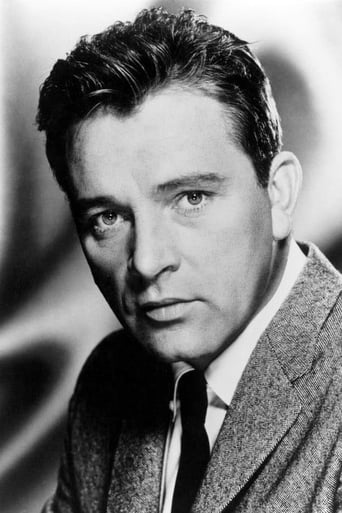Boobirt
Stylish but barely mediocre overall
Marketic
It's no definitive masterpiece but it's damn close.
Dorathen
Better Late Then Never
Cody
One of the best movies of the year! Incredible from the beginning to the end.
smarti21
This was a film I saw in my youth on late night television. It made quite an impression on me due to the power of Richard Burton's performance. Looking back after viewing the DVD, it seems like something the Burton's would have cooked up over a long holiday weekend. This was a great film for Richard Burton's ego. After all, he's in most of the scenes. Elizabeth Taylor seems strangely out of place as Helen of Troy and the effects of years of alcohol abuse caused her appearance to be seriously frayed at the edges. Still, this is a fun film that get's a watch from me about every five years. I particularly enjoyed Andres Truber's Portrayal of Mephistopheles. He is quite believable as the somewhat penitent fallen angel. The seven deadly sins sequence always gets a hardy laugh from me. The character of Lechery looks like a poofed up drag queen. The ending is quite dramatic and the delivery o the lines by Burton are indeed quite effective.
thistledown-2
I was so astonished to see Marlowe's 400 year old play done so superbly by Richard Burton whom I consider to be one of the finest actors of the 20th century and the wonderful production which held your interest throughout, the other actors were terrific, especially the actor who played Mephistopholis, Now we come to Miss Elizabeth Taylor who played Helen Of Troy- Beauty Miss Taylor had in abundance but for some reason she had on so much eye make-up she looked laughable, surely Helen was a natural beauty - another silly thing was the fact that whenever Miss Taylor appeared she was accompanied by a soprano who sang extremely loud and sang the theme from Star Trek..
MARIO GAUCI
Cerebral and altogether too-literal transcript of Christopher Marlowe’s venerable play – the end result is opulent yet claustrophobic, not to mention dull.Burton the producer/director certainly made inspired choices for his collaborators – production designer John De Cuir, cinematographer Gabor Pogany, composer Mario Nascimbene. Burton the actor, then, is riveting as always (particularly the monologue towards the end) – but real-life spouse Elizabeth Taylor is simply ludicrous as Faustus’ object of desire (in various disguises including Helen of Troy)! The remaining cast is largely made up of Oxford University drama students (the University itself, of which Burton was a former graduate, partly financed the film!): of these, only Andreas Teuber’s bald-headed, monk-clad Mephistopheles manages a striking performance.The “Mondo Digital” review had likened this to the cult horror films made by Hammer, Roger Corman and Mario Bava: judging by the campy Papal sequence (with a host of fey clergymen on whom Faustus plays childish pranks) and an equally tacky conjuring act before a medieval court, I’d say that Burton and Coghill probably drew more on the decadent work of Federico Fellini or Pier Paolo Pasolini than anything else! Anyway, the experimental nature of the film extends to the baffling over-use of a pointless ‘foggy’ effect; its depiction of lust, however, emerges as traditionally naïve – with frolicking satyrs in a garden setting and decorous female nudity (including Taylor herself for one very brief moment).Ulimately, DOCTOR FAUSTUS is to be considered an interesting failure – a personal tour-de-force for Burton but which, perhaps, needed a steadier hand…say, Joseph Losey (with whom the two stars would soon work on BOOM! [1968], curiously enough, a similar and equally maligned blend of fantasy and theatricality).
elblanco1947
I'll admit from the beginning that Marlowe's Tragical History of Doctor Faustus is one of my alltime favorite plays, and that I used to have it virtually memorized. The play is itself so good that any relatively true adaptation to the screen would make a thoughtful and enjoyable film.I am old enough to remember the tabloid brouhaha about Burton and Taylor, but even that unpleasantness is insufficient to intrude upon my complete enjoyment of this film. The dialogue is over 400 years old, requiring careful listening by the viewer who is unfamiliar with the play, but that viewer will be well rewarded for his attention. The dialogue is so rich with meaning, with philosophical nuance, with the heights and depths of human emotion that the attentive viewer cannot help but think about the meaning of his actions and the consequences of them, as well. This Doctor Faustus is a fleshed out (and fleshly) genius not unlike some of those we might encounter today. The scene in which Faustus knows for certain that all that, for which he has sold his soul, is illusion; yet he still cannot bring himself to renounce it all, and redeem himself, strikes at the souls of all of us. As Don Blanding wrote about his imagined painting entitled "Sin!" I love while I loathe the beastly thing. I guess that's the way one feels about sin."

